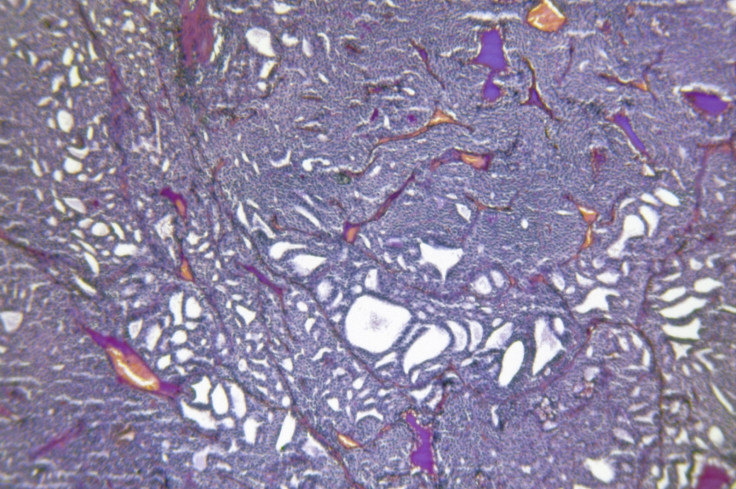Is the worldwide thyroid cancer epidemic down to overdiagnosis?
Up to 90% of thyroid cancers in women in high-income countries estimated to be overdiagnosis.

The growing epidemic of thyroid cancer reported over recent decades in several high-income nations can largely be put down to overdiagnosis, according to a new report by the International Agency for Research on Cancer (IARC), in collaboration with the Aviano National Cancer Institute in Italy. Much of the time, tumours were diagnosed that were very unlikely to cause death during a person's lifetime.
The report, published in The New England Journal of Medicine utilised cancer registry data from the IARC to estimate the number of overdiagnosed cases in Australia, Finland, France, Denmark, Italy, Japan, Scotland, Norway, the Republic of Korea, the USA, Sweden and England.
"Countries such as the USA, Italy, and France have been most severely affected by overdiagnosis of thyroid cancer since the 1980s, after the introduction of ultrasonography, but the most recent and striking example is the Republic of Korea," says Dr Salvatore Vaccarella, an IARC staff scientist who led the study. "A few years after ultrasonography of the thyroid gland started being widely offered in the framework of a population-based multi-cancer screening, thyroid cancer has become the most commonly diagnosed cancer in women in the Republic of Korea, with approximately 90% of cases in 2003–2007 estimated to be due to overdiagnosis."
In the same period, the estimated fraction of overdiagnosed cases in women ranges between 70% and 80% in Italy, France, Australia and the USA, while for the Nordic countries, Japan, England and Scotland, the figure is around 50%. For men, far fewer cases of overdiagnosis were reported, with an estimate of 70% in Italy, France and the Republic of Korea, 45% in Australia and the USA, and less than 25% in the other countries surveyed.
All in all, an estimated 470,000 women and 90,000 among the 12 countries studied, were overdiagnosed between 1998 and 2007.
The growing rates of overdiagnosis can, in part, be attributed to increasing medical surveillance as well as improved technology and diagnostic techniques such as neck ultrasonography - introduced in the 1980s - computed tomography (CT) scanning and functional magnetic resonance imaging (fMRI). These developments have led to the detection of a significant number of non-lethal and indolent diseases – those that progress very slowly or cause little or no pain – which exist in abundance in the thyroid gland of healthy people of all ages. Most of these kinds of tumours are very unlikely to produce symptoms or cause death.
"The majority of the overdiagnosed thyroid cancer cases undergo total thyroidectomy and frequently other harmful treatments, like neck lymph node dissection and radiotherapy, without proven benefits in terms of improved survival," says Dr Silvia Franceschi, one of the authors of the study.
"More than half a million people are estimated to have been overdiagnosed with thyroid cancer in the 12 countries studied," says IARC Director Dr Christopher Wild. "The drastic increase in overdiagnosis and overtreatment of thyroid cancer is already a serious public health concern in many high-income countries, with worrying signs of the same trend in low- and middle-income countries. It is therefore critical to have more research evidence in order to evaluate the best approach to address the epidemic of thyroid cancer and to avoid unnecessary harm to patients."
© Copyright IBTimes 2025. All rights reserved.





















